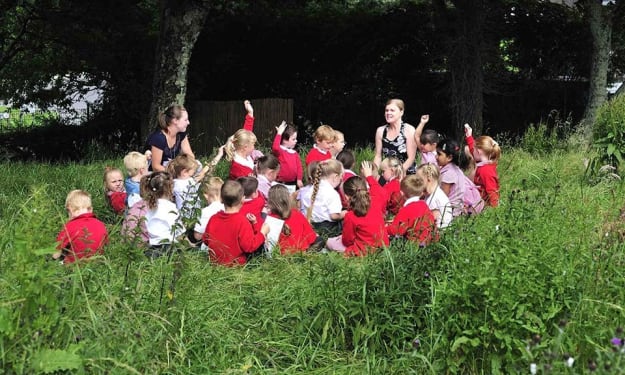How UK Schools Are Tackling Climate Change Education
Explore Ideas To Tackling Climate

Climate change is an urgent global issue, and its impact is being felt across the world. In response, the United Kingdom has made significant strides in integrating climate change education into its school curriculum. This article explores how UK schools are addressing climate change education, highlighting the importance of this initiative and the various strategies being employed to educate the next generation about the environment.
The Need for Climate Change Education
The global climate crisis is one of the most pressing challenges of our time. Rising temperatures, extreme weather events, and environmental degradation are just a few of the consequences we face. Education plays a crucial role in combating climate change by raising awareness, fostering understanding, and inspiring action among young people. By educating students about climate change, we empower them to make informed decisions and take meaningful action to protect our planet.
Government Initiatives
The UK government has recognized the importance of climate change education and has implemented several policies to support it. Initiatives include funding for schools to develop climate-focused programs, providing resources for teachers, and integrating climate education into the national curriculum. These measures ensure that schools have the support they need to deliver high-quality climate education.
Curriculum Integration
Climate change education is being woven into various subjects across the curriculum. Science classes explore the environmental and biological impacts of climate change, while geography lessons examine the global and local effects. Even subjects like English and Art are incorporating climate themes, encouraging students to express their understanding and concerns creatively. For example, a geography lesson might include a project on the impact of rising sea levels on coastal communities, while an English class could involve writing essays on environmental topics.
Teacher Training and Support
For climate change education to be effective, teachers need to be well-equipped and confident in delivering this content. Professional development programs are available to help teachers stay informed about the latest climate science and teaching methods. Additionally, there are numerous resources and tools, such as lesson plans, interactive activities, and educational videos, to support teachers in the classroom.
Student Engagement and Participation
Engaging students in climate change education goes beyond traditional classroom lessons. Many schools are incorporating hands-on projects and activities to make learning about climate change interactive and impactful. For instance, students might participate in school garden projects, energy conservation initiatives, or environmental clubs. Student-led initiatives, such as organizing climate strikes or awareness campaigns, also play a significant role in fostering a sense of responsibility and empowerment.
Collaborations and Partnerships
Schools are not tackling climate change education alone; they are collaborating with environmental organizations and local communities. Partnerships with organizations like Greenpeace, WWF, and local environmental groups provide schools with additional resources and expertise. Community involvement further enhances the learning experience, as students can see the real-world impact of their efforts and learn from community leaders.
Use of Technology
Technology is a powerful tool in climate change education. Digital tools and online platforms offer a wealth of resources for both teachers and students. Virtual reality (VR) experiences can transport students to different ecosystems to witness the effects of climate change firsthand, while online simulations allow them to experiment with solutions to environmental problems. These technologies make learning about climate change engaging and accessible.
Challenges Faced
Implementing climate change education is not without its challenges. Schools may face barriers such as limited funding, lack of resources, and insufficient teacher training. Additionally, there can be resistance to change, whether from within the school system or the wider community. However, schools are finding innovative solutions to overcome these challenges, such as seeking grants, forming partnerships, and leveraging technology.
Case Studies
Several UK schools serve as shining examples of successful climate change education. For instance, a school in London has integrated climate science into its entire curriculum, from primary to secondary levels. This school also hosts an annual eco-fair where students showcase their projects and initiatives. Another school in Manchester has implemented a comprehensive recycling program and uses renewable energy sources, significantly reducing its carbon footprint. These case studies demonstrate the positive impact that well-implemented climate education can have on students and the community.
International Comparisons
Looking beyond the UK, other countries are also making strides in climate change education. Countries like Sweden and Finland have long prioritized environmental education, with comprehensive programs starting from a young age. By comparing these international approaches, the UK can learn valuable lessons and further enhance its climate education strategies.
Are you searching for the perfect media dissertation topic to captivate your audience and demonstrate your academic prowess?
Look no further! Our extensive guide on media dissertation topics uk covers a diverse range of themes, from the influence of social media on public opinion to the role of traditional media in contemporary society. Discover how to explore critical issues such as media ethics, representation in media, digital journalism, and the impact of emerging technologies on media landscapes. We provide insights into formulating a compelling research question, conducting thorough literature reviews, and employing effective research methodologies. Whether you are interested in media theory, media policy, or media production, our guide offers a wealth of ideas and inspiration to help you excel in your dissertation journey. Dive into the dynamic world of media studies and unlock your potential with our expertly curated topics and tips.
Future of Climate Change Education
The future of climate change education in the UK looks promising. Emerging trends include greater emphasis on sustainability, interdisciplinary learning, and global collaboration. Long-term goals involve embedding climate education deeply into the curriculum and ensuring it evolves with the latest scientific knowledge and societal needs. As awareness grows, we can expect to see even more innovative and impactful educational initiatives.
Parental and Community Role
Parents and the community play a vital role in supporting climate change education. Parents can reinforce learning at home by discussing environmental issues and encouraging sustainable practices. Community projects, such as tree planting and local clean-up events, provide practical experiences for students and foster a sense of community involvement. By working together, schools, parents, and communities can create a supportive environment for climate education.
Impact Assessment
Measuring the success of climate education programs is essential to ensure they are effective and impactful. Schools can assess their programs through feedback from students and teachers, as well as evaluating changes in student knowledge, attitudes, and behaviors. Regular assessments help schools refine their approaches and continue to improve their climate education efforts.
Conclusion
In conclusion, UK schools are making significant strides in tackling climate change education. Through government support, curriculum integration, teacher training, student engagement, and community partnerships, they are equipping the next generation with the knowledge and skills needed to address climate change. As these efforts continue to evolve, the impact of climate education will grow, contributing to a more sustainable and environmentally conscious society.
About the Creator
jackjohnsonv
I have been working as an academic writer for the last five years at Native Assignment Help UK, specializing in providing outstanding Assignment Help and our Experts is experienced in tailors high-quality assignments
Enjoyed the story? Support the Creator.
Subscribe for free to receive all their stories in your feed. You could also pledge your support or give them a one-off tip, letting them know you appreciate their work.






Comments
There are no comments for this story
Be the first to respond and start the conversation.